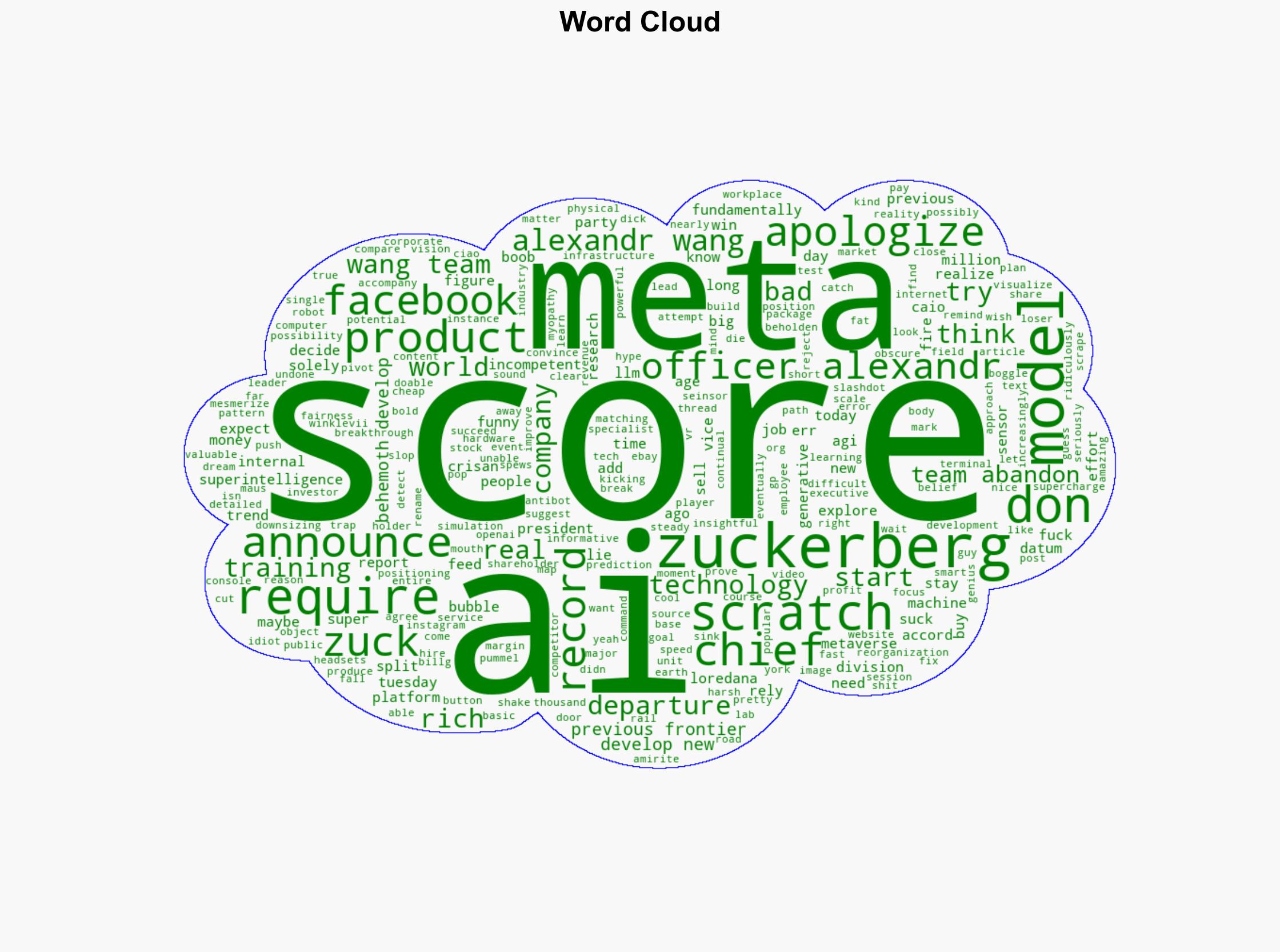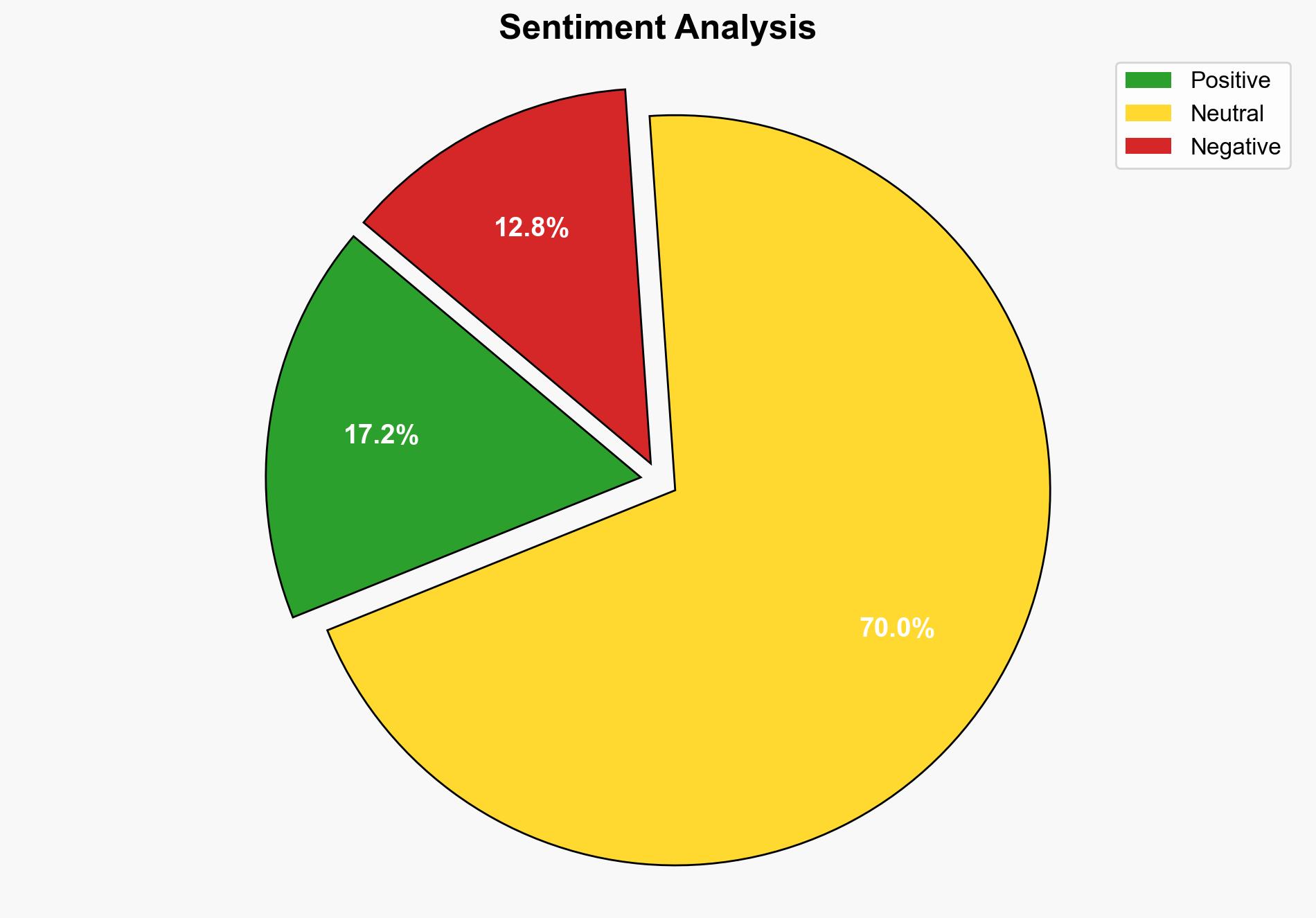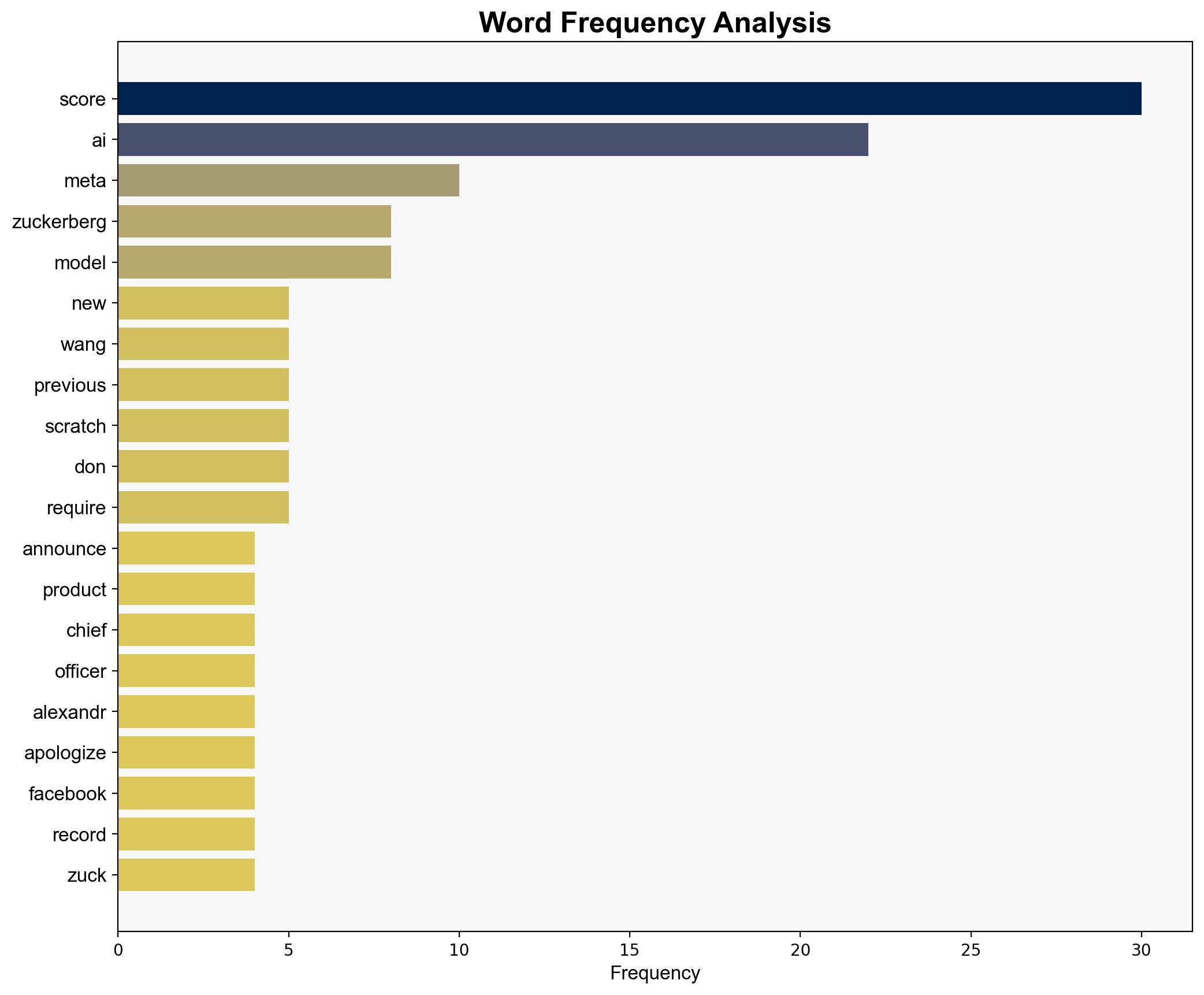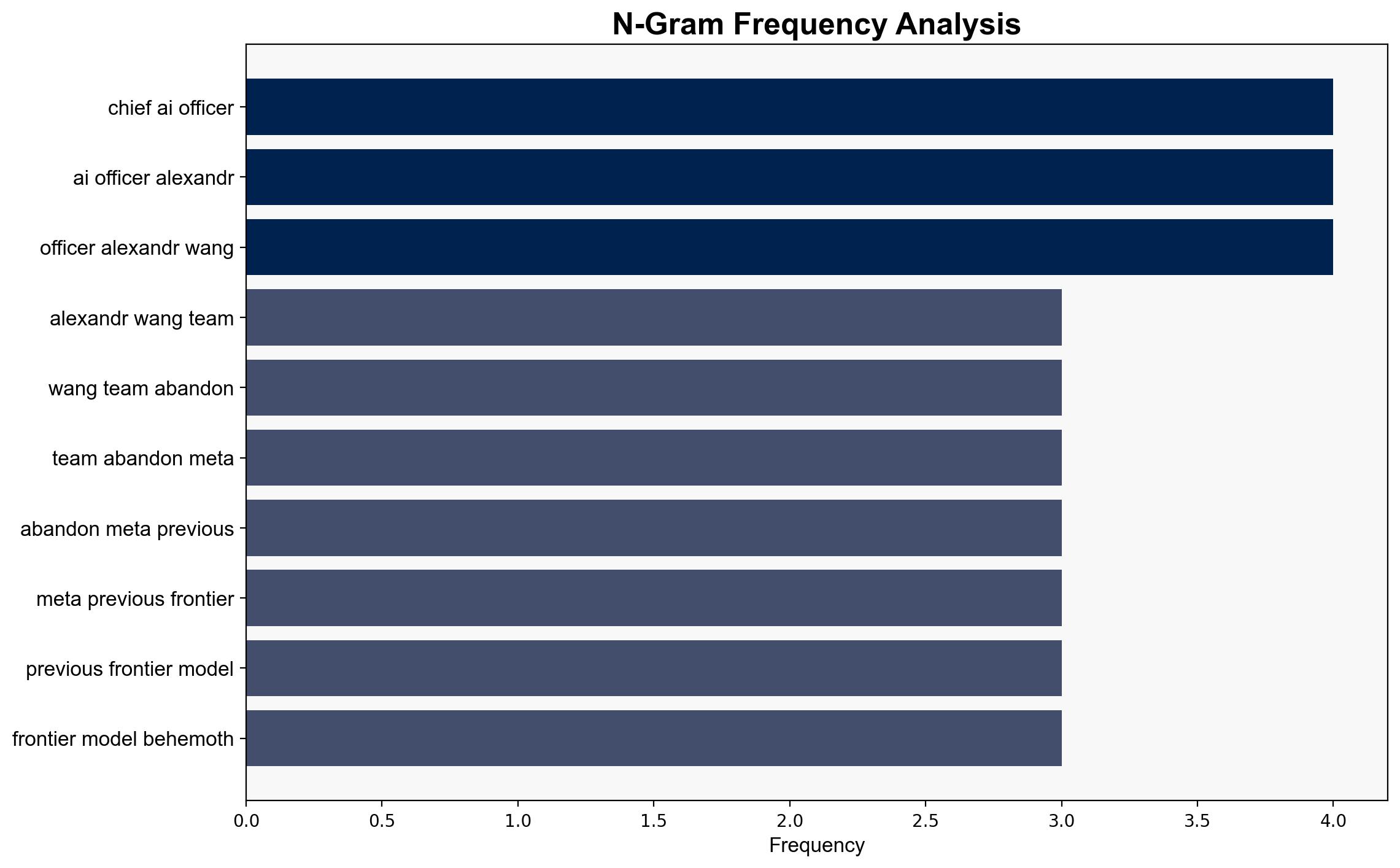Mark Zuckerberg Plans To Shake Up Meta’s AI Efforts Again – Slashdot.org
Published on: 2025-08-19
Intelligence Report: Mark Zuckerberg Plans To Shake Up Meta’s AI Efforts Again – Slashdot.org
1. BLUF (Bottom Line Up Front)
Meta is undergoing significant restructuring in its AI division, potentially indicating a strategic pivot or crisis response. The most supported hypothesis suggests a strategic pivot to integrate third-party AI models due to internal challenges. Confidence level: Moderate. Recommended action: Monitor Meta’s partnerships and AI development trajectory for shifts in competitive positioning.
2. Competing Hypotheses
1. **Strategic Pivot Hypothesis**: Meta is restructuring its AI efforts to integrate third-party AI models, suggesting a strategic pivot to enhance competitiveness and innovation by leveraging external technologies.
2. **Crisis Response Hypothesis**: The restructuring and executive departures indicate internal challenges or failures in Meta’s AI strategy, necessitating a crisis response to stabilize operations and investor confidence.
Using ACH 2.0, the Strategic Pivot Hypothesis is better supported by the focus on exploring third-party AI models and the development of new models from scratch, indicating a proactive approach to innovation.
3. Key Assumptions and Red Flags
– **Assumptions**: The Strategic Pivot Hypothesis assumes Meta’s internal AI capabilities are insufficient for competitive advantage. The Crisis Response Hypothesis assumes internal turmoil is the primary driver of changes.
– **Red Flags**: Lack of detailed information on the success or failure of previous AI initiatives. The departure of key executives could signal deeper issues not publicly disclosed.
– **Blind Spots**: Potential external pressures, such as regulatory challenges or competitive threats, are not addressed in the source.
4. Implications and Strategic Risks
– **Economic**: Meta’s restructuring could impact investor confidence and stock performance. Successful integration of third-party models may enhance market position.
– **Cyber**: Increased reliance on third-party AI models could introduce cybersecurity vulnerabilities.
– **Geopolitical**: Meta’s AI strategy may influence global AI leadership dynamics, particularly in competition with other tech giants.
– **Psychological**: Employee morale and public perception could be affected by executive departures and restructuring.
5. Recommendations and Outlook
- Monitor Meta’s partnerships with AI model providers to assess strategic shifts.
- Evaluate cybersecurity measures related to third-party integrations.
- Scenario Projections:
- Best Case: Successful integration of new AI models enhances Meta’s market position.
- Worst Case: Internal challenges lead to further instability and loss of competitive edge.
- Most Likely: Gradual improvement in AI capabilities with mixed short-term outcomes.
6. Key Individuals and Entities
– Mark Zuckerberg
– Loredana Crisan
– Alexandr Wang
7. Thematic Tags
technology strategy, corporate restructuring, AI innovation, competitive dynamics




